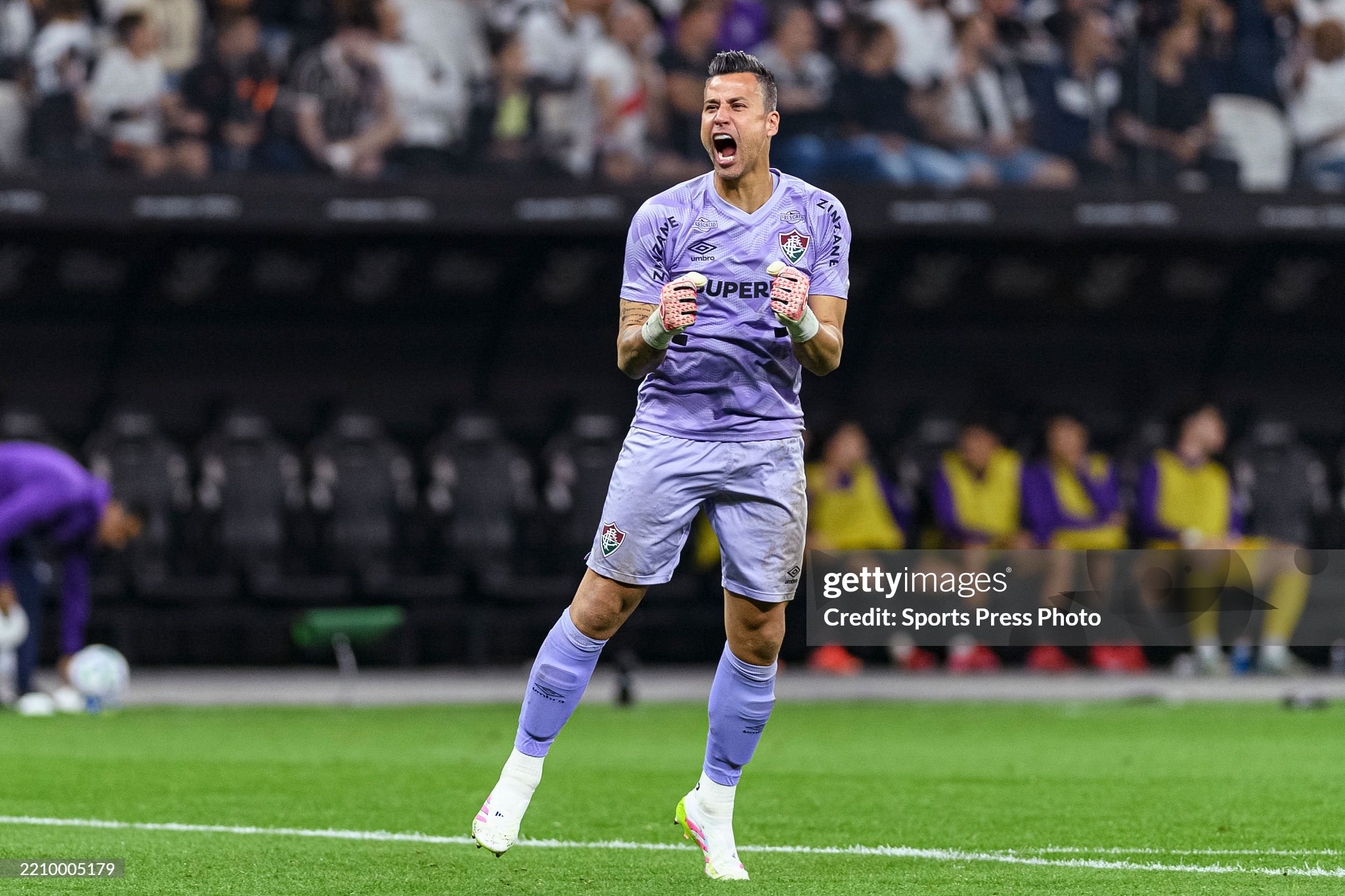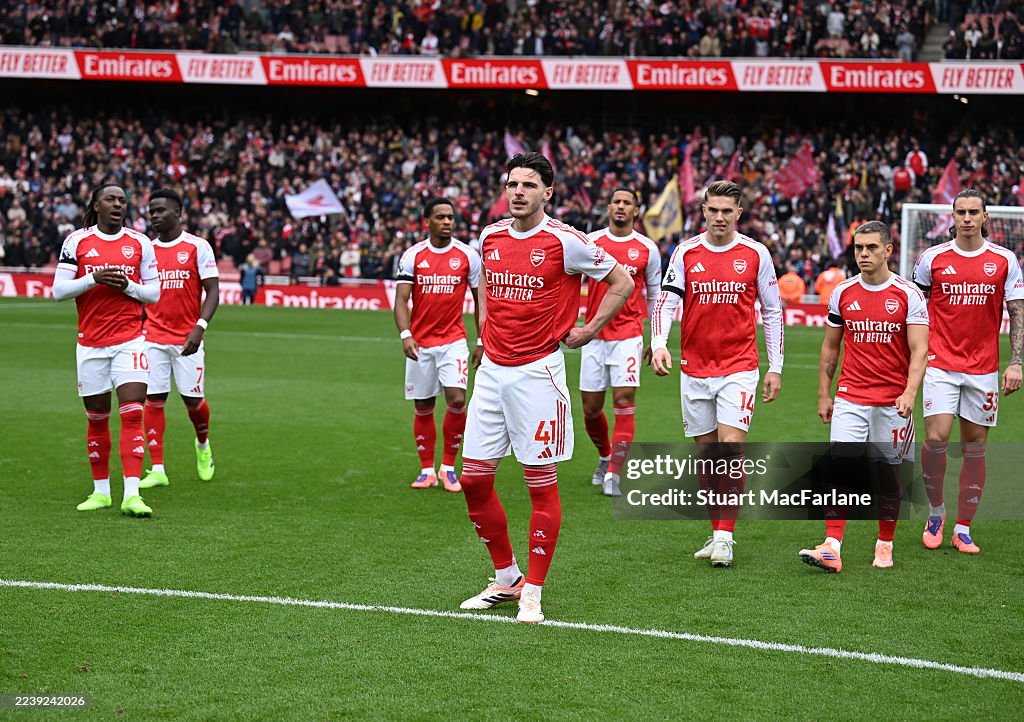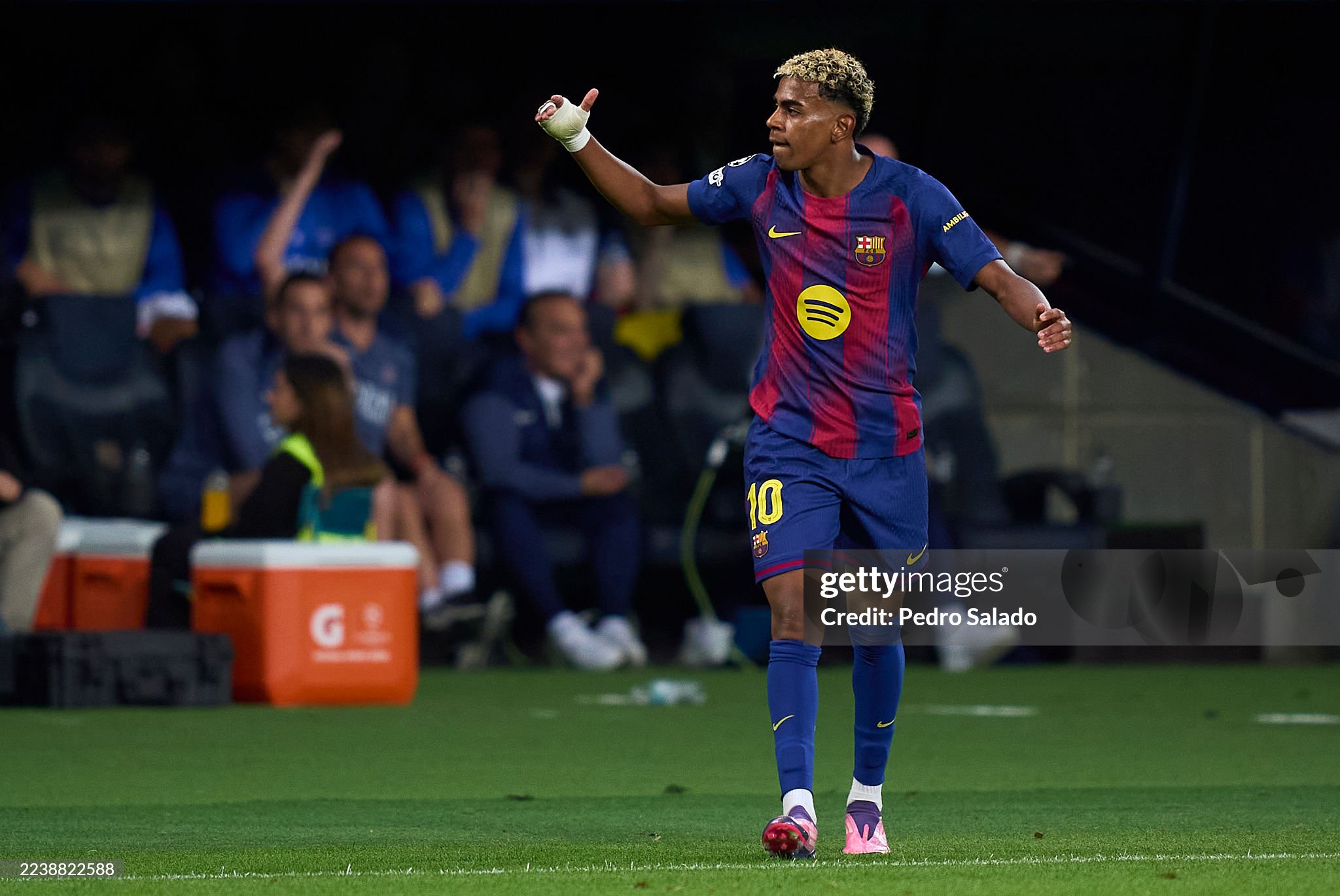The oldest player at the Club World Cup will take the field on Tuesday evening against Borussia Dortmund: Fluminense goalkeeper Fábio. And if he also plays in the final, he will become the oldest player ever at a Club World Cup.
 Embed from Getty Images
Embed from Getty Images
On Tuesday 18:00 local time the Maracanã in Rio de Janeiro will stage one of the most intriguing fixtures of this year’s FIFA Club World Cup when South American champions Fluminense take on European giants Borussia Dortmund.
The match would already command worldwide attention on sporting merit alone, yet an extra layer of fascination surrounds the Brazilian side because their goalkeeper Fábio is poised to become the oldest footballer ever to appear in any edition of the tournament. When he walks out of the tunnel he will be forty-four years, nine months and seventeen days old, pushing the boundaries of professional longevity in a way few athletes in any sport manage to do.
Fábio’s appearance record is breathtaking. The veteran has taken part in 1 374 official senior matches since his professional debut in 1997 for União Bandeirante, the same calendar year that Peter Shilton called time on a career which finished at 1 390 games and set the world benchmark. If Fluminense advance deep enough in domestic and continental competitions next season, that benchmark is now within realistic reach. While Shilton accumulated most of his minutes across the English lower tiers, Fábio has done so almost exclusively in Brazil’s fiercely competitive Série A, first with Vasco da Gama, then Cruzeiro for a decade and a half, and finally Fluminense, where he arrived in 2022 on what was initially intended to be a short-term deal instead of a post-retirement sabbatical.
That deal has since been extended twice, the most recent renewal binding him to the club until December 2026. What persuaded the Flu hierarchy was how comfortably he re-adjusted to the highest level after a brief break from the game. Since re-signing he has passed the 200-appearance mark in Tricolor colours, celebrated the long-awaited Copa Libertadores triumph in 2024 and added another Campeonato Carioca medal to the museum he keeps in his family home in Santa Catarina.
His relationship with major tournaments actually predates the modern Club World Cup. In 2000, as a twenty-year-old, he travelled to Japan with Cruzeiro for what was then called the FIFA Club World Championship. Twenty-five years later the format has changed, the venue has changed and the number of competing teams has doubled, yet the same goalkeeper remains. The only player older than Fábio in the history of the previous format is Óscar Pérez, who was forty-four years, ten months and ten days when he started for Pachuca in 2017. Should Fluminense navigate past Dortmund and then reach the final four nights later, Fábio will surpass Pérez as well.
Throughout his career he has avoided the trappings of high-tech sports science that dominate elite dressing rooms. He rarely lifts weights, dislikes post-training massages and claims that three hours of sleep per night is plenty. Club staff have long since stopped trying to alter his habits; they simply design lighter recovery days and longer tactical meetings for him while the rest of the squad finish their gym sets. He compensates with meticulous personal nutrition he shuns processed sugar and caffeine and an ingrained feel for positioning that reduces the need for acrobatic saves. Younger goalkeepers talk about reflex drills; Fábio talks about angles and anticipation.
He is candid that retirement has crossed his mind more than once. In 2014 he openly considered quitting after Cruzeiro’s run to the league title drained him emotionally. Eight years later, in January 2022, he actually announced the end of his playing days following a contractual dispute in Belo Horizonte. Fluminense phoned him the next morning; less than a week later he signed, and within a month he had reclaimed a starting berth ahead of two keepers ten and fifteen years his junior. In March 2024 he told the club’s in-house channel that coming to terms with never playing for Brazil’s senior national team took the longest to accept, yet peace arrived the day he lifted the Libertadores trophy because, in his words paraphrased, many of his peers had retired without touching that cup.
Tactically his presence alters how manager Fernando Diniz instructs the back line. Fábio’s ball-playing comfort allows Flu centre-backs to split wider, enabling André or Martinelli to drop between them and launch the short-passing triangles that define Diniz’s build-up phase. Against Dortmund this distribution will be vital because Edin Terzić’s side press aggressively through Sébastien Haller and Karim Adeyemi. Diniz drilled scenarios all week in which Fábio acts as a third centre-back, inviting Dortmund forwards to commit before clipping medium-length passes over the first line into John Arias drifting inside. Beyond the tactical value, there is a psychological factor: every Flu defender has grown up watching Fábio on television; they speak openly about the calm his voice brings when he calls the defensive line.
Borussia Dortmund arrive with their own narrative: the Bundesliga runners-up are seeking a first global crown to accompany their 1997 Champions League triumph. Veteran Marco Reus, now in his mid-thirties, will look across at a peer nearly a decade older and perhaps take inspiration that careers can stretch further than traditional arcs suggest. Terzić will try to isolate young full-back Jhon Ávila on Dortmund’s right to test Fábio’s readiness at dealing with early low crosses, a weakness critics say does creep in during congested schedules.
Ticket demand for this quarter-final sold out the smaller Mohammed Bin Rashid Stadium in Dubai, prompting FIFA to move the fixture back to Rio’s iconic ground after internal logistical reshuffles. The Maracanã, scene of 1950 heartbreak and 2014 redemption for Brazilian football, will now witness another milestone chapter: a goalkeeper closer to forty-five than forty-four setting foot on the same grass where his idols Rogério Ceni and Zetti once excelled.
Club staff confirm that Fábio’s pre-match routine varies little regardless of the stakes. He will arrive four hours before kick-off, walk the pitch in sandals, perform a twelve-minute breathing exercise learned from a former futsal coach and then share a brief laugh with kit-man Marcelo Gallo, who has prepared an extra pair of gloves with grip enhancements chosen specifically for the lighter Dubai match ball. Only then will he sit in the dressing room corner he always chooses, silently visualising the first two minutes of play.
Whether or not Fluminense progress beyond Dortmund, Tuesday’s fixture already cements Fábio in the record books of the modern game. If the Cariocas do go on to lift the trophy, their captain will have completed a journey from a small-town teenager on loan at Atlético Paranaense to the oldest champion in the history of the Club World Cup. For now the only certain detail is that when the referee’s whistle blows at 18:00, millions will watch a goalkeeper who has defied both time and expectation stand between the sticks once more.
Updated: 04:02, 17 Jun 2025








